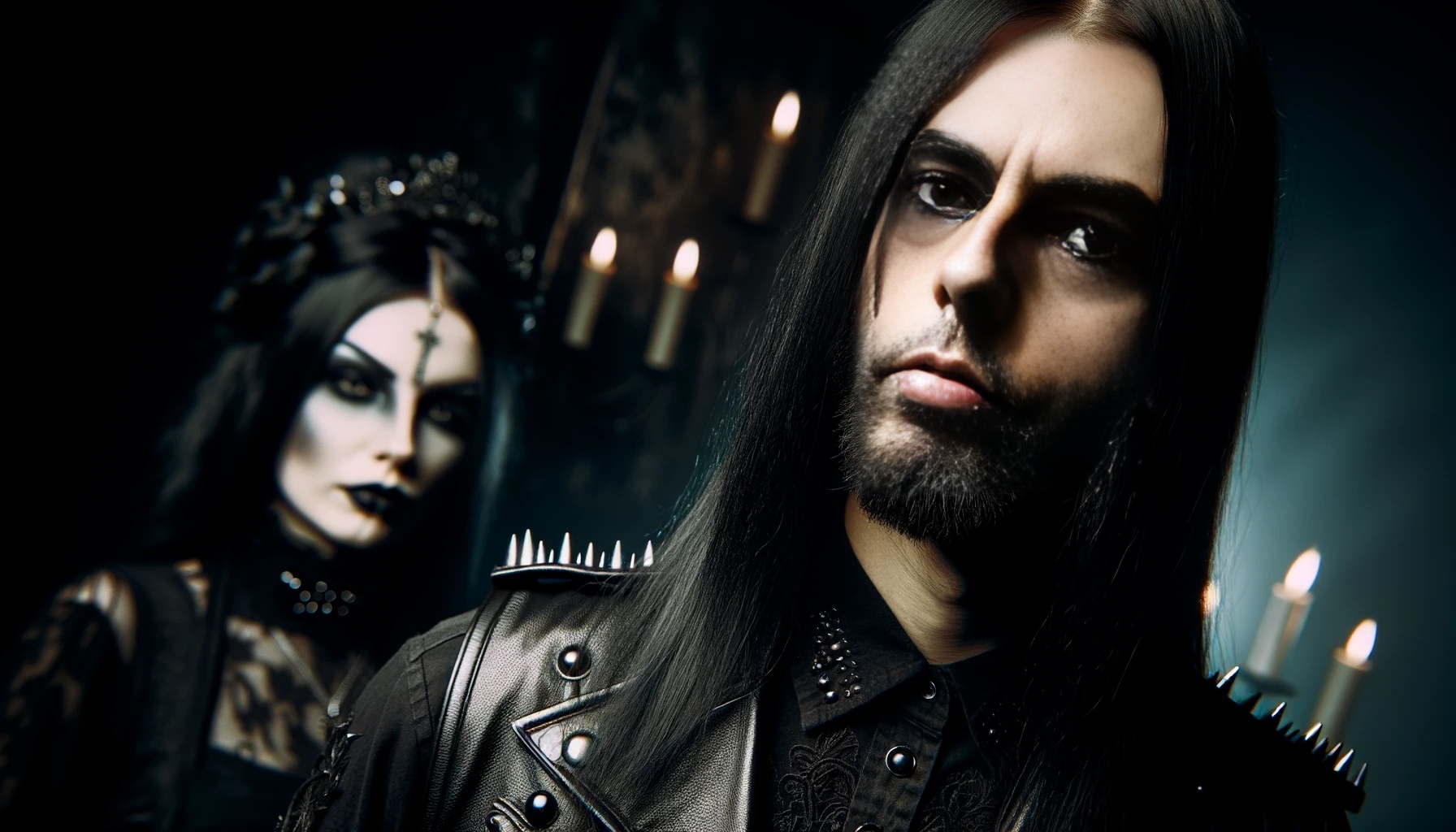Metal music has long been the outcast genre, the unwanted child of the music industry, often misunderstood and mislabeled as aggressive or dangerous. But guess what? Beneath the surface of the thunderous riffs, growling vocals, and ferocious energy, there’s something far more significant. Metal music has become a battleground for mental health advocacy, challenging society’s taboos around depression, anxiety, addiction, and suicide. Let’s break it down—mental health advocacy in metal music is not just a movement; it’s a goddamn revolution.

Metal and Mental Health: Why Metalheads Understand the Struggle
While pop stars prance around singing about love and parties, metal bands are out here confronting the darkest depths of the human psyche. From Metallica’s “Fade to Black” to Slipknot’s relentless lyrical exploration of psychological pain, metal doesn’t shy away from talking about the real stuff—the pain, the isolation, the madness. Metal is the only genre brave enough to take those demons head-on. It’s loud, it’s brutal, but it’s also cathartic.
Many in society believe that metal glorifies violence and anger, but the truth is, metal has become a refuge for those struggling with mental illness. Rather than glamorizing mental health issues, it gives a voice to the voiceless and offers a form of release for those battling their inner turmoil. It’s the primal scream that lets listeners know they aren’t alone. Why do metalheads seem to ‘get it’ when it comes to mental health? Because metal doesn’t sugarcoat anything. It deals with life’s worst moments in the most direct way possible—through raw, emotional expression.

The Role of Metal Bands in Mental Health Advocacy
For years, metal bands have been pushing boundaries, not just musically, but thematically. Look at Korn, whose frontman Jonathan Davis has spoken openly about his struggles with depression and anxiety. Listen to Chester Bennington of Linkin Park, whose lyrical vulnerability connected with millions before his tragic passing. These artists aren’t just entertainers; they’re advocates, opening up their personal hells for all to see, and by doing so, they encourage their fans to confront their own demons.
In fact, Davis once said in an interview that metal isn’t just music; it’s therapy. And he’s right. Where else can you channel that much rage, pain, and despair into something productive, into something that heals rather than destroys?
Then there’s Corey Taylor of Slipknot and Stone Sour, who has made mental health advocacy a key part of his identity. Taylor has been candid about his past battles with substance abuse, depression, and suicide attempts, and he consistently uses his platform to raise awareness about the need for better mental health support. In interviews, on stage, in his books—Taylor never misses a chance to remind fans that it’s okay not to be okay. More importantly, he emphasizes that seeking help is not a sign of weakness but of strength.

Metal Music: A Lifeline for Fans Struggling with Mental Health
It’s no surprise that a 2024 study on Spotify’s mental health playlists found that metal is among the top genres people turn to when they are struggling mentally. People don’t listen to metal to feed their rage; they listen to it to release it. They connect with the music on a deeply personal level, and many fans credit metal bands with saving their lives. For a genre so often demonized, metal has quietly become a safe haven for people dealing with issues like depression, anxiety, PTSD, and addiction.
When Metallica released “Fade to Black”—a song about suicidal thoughts—it wasn’t met with applause. Hell no, the mainstream lashed out. But over the years, it’s become an anthem for fans who felt like they had nowhere else to turn. Metallica took what society wanted to hide and brought it into the light, in all its agonizing reality. That’s the power of metal—it refuses to turn away from the ugly truths.

Why the Metal Scene is Leading the Mental Health Charge
It’s not just the bands, either. The metal community as a whole is doing more for mental health advocacy than most people realize. From grassroots organizations to massive festivals, the metal scene is rallying to break the stigma around mental illness. You think the mainstream music industry is leading the charge for mental health? Think again.
Take festivals like Download or Hellfest, which now frequently include mental health tents and support services for fans who need a break from the intensity of the event. Metal festivals, which outsiders might assume to be nothing more than an orgy of chaos, are increasingly becoming places where fans can talk openly about their mental health struggles without fear of judgment. The “metal family” takes care of its own, and that’s something the world could learn from.
And let’s not forget about bands like Architects and their frontman Sam Carter, who uses his platform to discuss grief, loss, and mental illness following the death of their guitarist Tom Searle. Their music serves as a cathartic release not only for them but for their audience as well.

Metal’s Dark Aesthetic: A Mirror to Mental Struggles
Of course, one of the biggest reasons metal is such a powerful force in mental health advocacy is because of its dark aesthetic. Metal, with its obsession with death, existential dread, and the occult, is uniquely positioned to speak to people who feel like they are living in a personal hell. Don’t buy into the bullshit that metal is all about devil worship or nihilism—that’s a lazy stereotype. Instead, metal uses its intense imagery to tackle the very real issues of despair, anger, and isolation that come with mental illness.
The genre’s willingness to embrace the darkness makes it a natural fit for anyone struggling to keep their own inner darkness at bay. When people are told to just “cheer up” or “get over it,” metal says, “No, let’s deal with it.” It offers a stark contrast to the fake positivity that dominates so much of our culture, and in doing so, it provides a genuine outlet for emotional release.

The Need for Mental Health Support in Metal
Despite its contributions to the mental health conversation, the metal scene itself isn’t immune to mental illness. Tragically, the suicides of artists like Chester Bennington and Chris Cornell serve as grim reminders that there’s still so much work to be done. Metal music has been a voice for the voiceless, but now it’s time for society to step up and provide the support that metalheads and musicians alike desperately need. It’s time to recognize metal for what it truly is—a lifeline, a mirror, and yes, an advocate.
If anything, the tragic deaths of these icons should light a fire under the collective ass of the music industry, governments, and mental health organizations to do better. These artists gave everything to their fans, and now it’s time for the world to give back by providing real mental health services.

Conclusion: Metal as the Ultimate Mental Health Advocate
In a world that’s hell-bent on ignoring mental illness or brushing it under the rug, metal stands tall as a genre that’s not afraid to face the demons head-on. Mental health advocacy in metal music is not a passing trend; it’s embedded into the very fabric of what this genre is about. Metal music doesn’t just raise awareness; it offers a lifeline, a sense of belonging, and most importantly, it tells its fans, “You’re not alone.”
And if that makes people uncomfortable? Well, maybe it’s about time they started listening.
For more metal-fueled insights into life, music, and the darker side of things, check out my homepage at Haborymx.com. And don’t forget to follow me across all social platforms for raw, unfiltered takes: All My Links.
Follow me on social media


